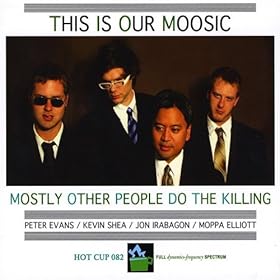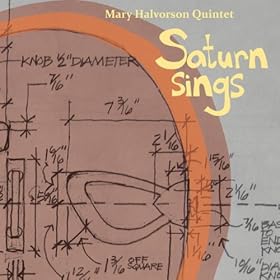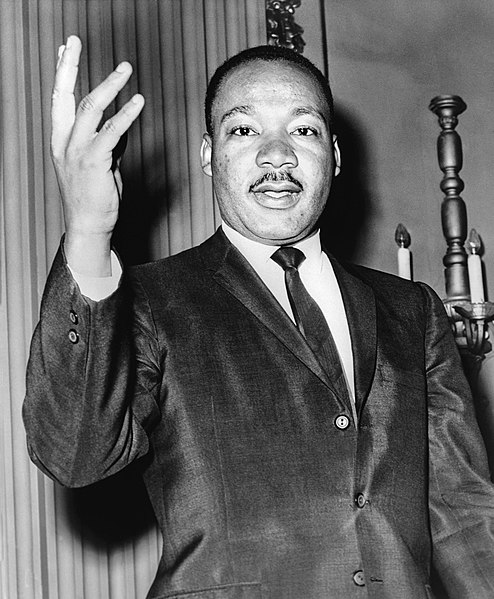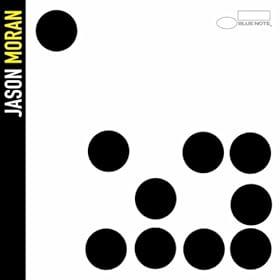A blog post from James Hale this week had me reconsidering a question which I had wanted to ponder in a blog post awhile back, but eventually decided it wouldn't be worth the effort. At Jazz Chronicles, Hale asks, "
Is 'Jazz' A Dated Term?" The impetus for this question was an ostensibly heated debate at a Jazz Journalists Association conference panel entitled
"The State of Jazz Journalism" (any panel titled The State of _______ foreshadows contentious debate that may not be worth it, in my opinion). Alex Rodriguez responded to the post and posted
his thoughts on the subject as well. Rodriguez contends that jazz journalists and critics share a responsibility to help the jazz audience (which is "sort of like a big, dysfunctional family") achieve balance in its understanding of the music, navigating between the poles of an ahistorical and "only-historical" approach to understanding jazz. I'm left with the intention to simply ignore both poles in favor of a different analytical framework altogether.

My only reservation about writing a jazz blog is that jazz writing is surrounded by this aura of responsibility. Jazz writers and critics are assigned (or assign themselves) a gatekeeper role which is unmatched in most areas of music journalism. Classical critics are superseded in this role by repertory, rock and hip hop critics by a more easily-arrived-at definition of the musics they cover (I'm overgeneralizing here, but bear with me). I follow a lot of indie rock blogs, and I can't recall any of them ever contending with the existential dilemmas that jazz bloggers address every few months or so. To mention just one example, nobody batted an eye when
Gorilla vs. Bear included albums by Beach House, Big Boi, Arcade Fire, and Erykah Badu on its
2010 albums of the year list, even though those four artists occupy vastly different corners of the music world. I can't think of any jazz blog that included nonjazz on its year-end list (even my own list was divided into jazz and nonjazz). What strikes me about this is that probably not many people would mind if someone did this, but jazz bloggers effectively policed themselves, driven by the self-imposed responsibility to promote jazz ahead of other types of music (ostensibly because jazz is always dying, or at best, holding steady). The irony here, of course, is that the jazz world is such a complex ecosystem, a place where Wynton Marsalis, the Robert Glasper Experiment, and any number of swing, traditional jazz/Dixieland, postbop, neobop, acid jazz, and jazz-rock artists can coexist on a single record-store shelf. Adding a layer of segregation to year-end lists seems arbitrary to a silly degree.
But I digress. On the question of jazz being an outdated term or an inadequate genre signifier, I must confess that the word has a continually decreasing utility to me except as a quick and dirty signifier when people ask me what kind of music I like. When I reply "jazz," the conversation never goes in the same direction, because the fact is, stories of the death of jazz to the contrary, most people know what jazz is, and a surprising number of them have at least some jazz artist they can count among their favorite musicians, be it a singer like Nina Simone or Billie Holiday, a deceased legend like Miles Davis or Charlie Parker, or a current act like Medeski Martin and Wood or Esperanza Spaulding. This is because jazz remains an oral history with many branches, one with the "only-historical" approach to understanding the music already incorporated into individual artists' personalities and musical background. It may not be immediately obvious to everyone who hears the music (indeed, you can't really
hear jazz until you've
listened to a lot of it first).
Indeed, Rodriguez makes this point when he champions Jason Moran, whose music "starts from a historical place." Moran is not the only artist whose music is historicized. In a recent
interview, Vijay Iyer (who titled a recent album
Historicity, in case you were wondering how he grounded his approach) said of jazz:
I don't think of it as a style even. I think of it as a community of people who are invested in it. And I also think of it as a body of knowledge. You can say it's a history of ideas, and also, a history of actions. I think part of what's happened is that its reason for existing has transformed in terms of who's involved and why.
I am tempted to block-quote his entire answer, but he goes into a lot of detail, so I'll paraphrase here. Iyer notes that because the socio-economic circumstances upon which jazz was built have changed (i.e. jazz musicians for the most part no longer come from an
oppressed minority whose avenues for artistic self expression were limited by society), jazz itself has changed, and has grown and diversified to the point that the word cannot contain the music anymore. But even still, jazz musicians are still striving towards an expression of the self that feels "in its own small way impossible." For Iyer, this is connected to his own status as a man born from first-generation Indian immigrants, creating a new identity of the South Asian-American jazz musician. For someone else, there is another identity to invent. Because jazz is a music of invention, as time moves on the inventions multiply into a fractal of multitudes which may not all sound alike, but nonetheless remain jazz. They are born into the same tradition, but take it places that make sense to them.
I am reminded of what Esperanza Spalding told Anthony Dean-Harris in an interview last year:
We need all the aspects of it [jazz] and that’s okay. We need the Wynton Marsalis and we need the Anthony Braxton and we need a Chris Botti and we need Christian Scott. We need a Ledisi and we need a Rachelle Ferrell. We need everything... We need it all because that word doesn’t belong to anybody anymore. It’s become so broad that to me the only element of that word that has any meaning universally is just improvisation. Jazz can be anything but maybe the only element that's there across the board is that people are creating it in the moment.
Improvisation, too, but that is merely the tool for the self-examination and expression which unite the myriad sub-genres which constitute jazz in the 21st century. I'm going to take a break from the big-picture questions for awhile, but when the other debate making the rounds is
whether or not Keith Jarrett is an asshole (and he
is), I'll choose the big-picture topic anytime.
photo
via









